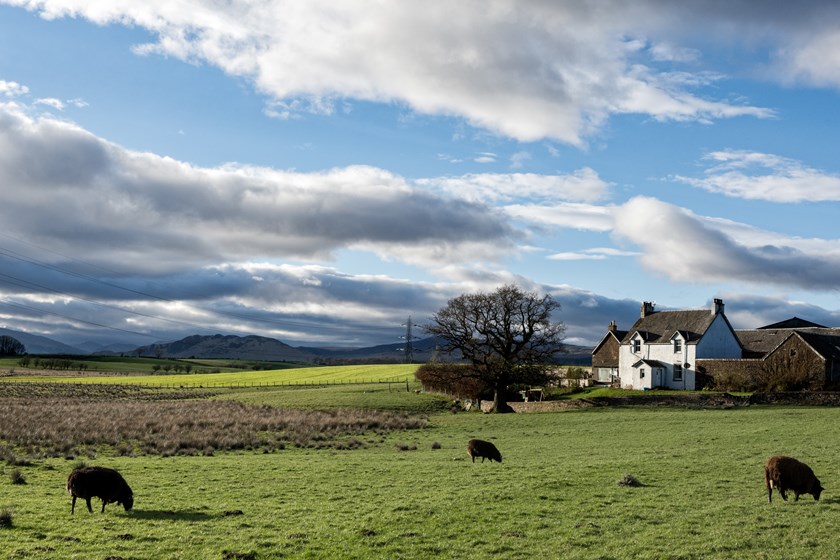Woodland – conditional exemption and environmental schemes
Insight

Woodland is proving to be an increasingly attractive asset as shown by the increase in the value of commercial woodland in 2021. As woodland plays an increasingly important part in diversified estates and with various schemes encouraging new woodland to be planted, we look at the interaction between two major benefits available to woodland owners – conditional exemption and subsidies from environmental schemes.
Conditional exemption
As outlined in David Gubbay’s The Tax Appeal of Trees, there are several tax advantages from which UK woodland can benefit, including business property relief, agricultural property relief, rollover or holdover relief. Heritage relief (also known as conditional exemption) may be available if the woodland itself or the surrounding area is one of outstanding scenic, historic or scientific interest.
If woodland qualifies for this relief, then on a chargeable transfer for inheritance tax (IHT) (such as the death of the owner or a 10 year charge where the woodland is held in a relevant property trust) it may be exempted from IHT on the condition that the owner enters into undertakings with HMRC to maintain the woodland and grant public access. HMRC will impose a recapture charge if undertakings are breached or the woodland is sold. Claims for heritage relief can apply to both ancient woodland and new plantations.
In addition, it is possible for woodland to be designated for conditional exemption before an IHT charge arises in return for undertakings being given. The owner is then secure in the knowledge that conditional exemption will be available for future IHT charges and the designation permits the owner to set up a heritage maintenance fund to support the woodland and any other designated land.
Subsidies
Post Brexit, legislation such as the Agriculture Act 2020 is creating a public policy framework that replaces the direct subsidies of the Common Agricultural Policy with subsidy schemes that reward the provision of environmental goods. Environmental Land Management schemes (ELMs) are soon to be piloted and aim to achieve the goals of the government’s 25 Year Environmental Plan and commitment to net zero emissions by 2050. Some ELMs (such as Landscape Recovery Schemes) anticipate large-scale tree planting. A variety of other schemes involving woodland creation also (in different ways) offer money in return for woodland commitments.
- The Woodland Carbon Code sets out strict contractual requirements for carbon capture through woodland creation and the generation of woodland carbon units for sale.
- Countryside Stewardship Woodland Tree Health grants provide a capital payment to assist with the removal of diseased trees and restocking. Pilots for the new, full Tree Health scheme will run for the next few years to test new grants which will be available to a wider group (such as small woodland managers).
- Woodland Creation Planning Grants and Woodland Creation Offers can provide a capital contribution and 10 years of standard maintenance costs to help establish new woodlands.
There is also a nascent private market developing in which land (including woodland) managers will contractually commit to deliver certain practices and outcomes in order to generate carbon credits for sale.
Compatibility
One thing in common to many environmental schemes is the concept of 'additionality' - an applicant must not already be under a contractual or statutory obligation to do works inherent in the scheme. The underlying principle is that applicants should not be able to receive two financial benefits for the same activity in respect of the same woodland (so called 'double-dipping' or 'double-counting').
Conditional exemption requires undertakings to be given to HMRC that certain tasks will be performed such as management, thinning, felling and replanting of woodland. Therefore, owners may risk disqualifying themselves from participation in environmental schemes by claiming conditional exemption or applying for designation if those undertakings overlap with the works envisaged by the environmental scheme.
The same issue arises where an owner enters into undertakings with other third parties in relation to woodland, such as contractual obligations between tenants and their landlords to carry out certain works. Planning obligations or agreements between developers and local authorities under section 106 of the Town and Country Planning Act 1990 (for example afforestation of arable for nitrate mitigation purposes) create the same problem.
Consider your objectives
Owners of woodland should proceed with caution in designating woodland for conditional exemption if participation in an environmental scheme is in prospect.
The financial benefits are considerably different. Conditional exemption can form a crucial part of long-term strategic planning for an estate and bring relief from hefty IHT charges, without which the estate might not survive, plus it has the added benefit of the opportunity to set up a heritage maintenance fund to support the woodland and wider estate. Environmental scheme subsidies may provide much needed immediate cashflow to fund works or plant new woodland and form part of an estate’s environmental and sustainability strategy.
Read the Rural Estates Newsletter Spring 2022 in full here.
If you require further information about anything covered in this briefing, please contact Isabel Paintin, Marcus Maxwell or your usual contact at the firm on +44 (0)20 3375 7000.
This publication is a general summary of the law. It should not replace legal advice tailored to your specific circumstances.
© Farrer & Co LLP, January 2022







